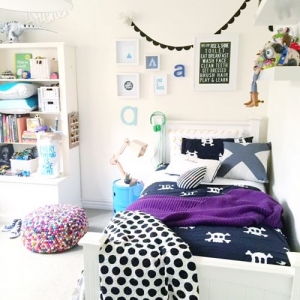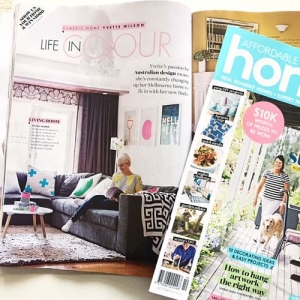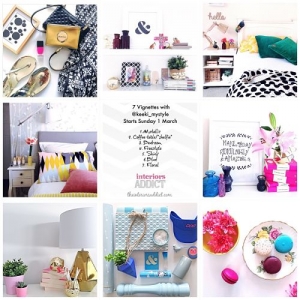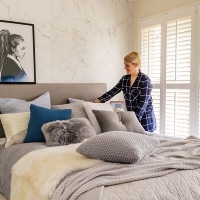Our lives seem to be full of more clutter than ever before. Our brains are constantly overloaded with information and our mental space is turning into a chaotic mess. This can often be reflected in our physical spaces as well. Clutter builds in our home and office as it does in our minds and this makes it difficult for us to stay focussed, motivated and productive.
Every now and again, it’s good to take a step back and declutter.
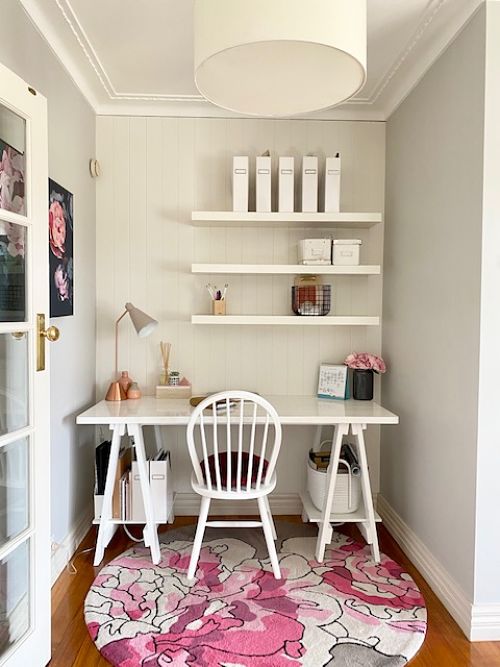
Decluttering your home
With the busy lives that many people lead today, the one thing you need when you walk in through the door after a hectic day at work is a clean and tidy home. Walking into a cluttered mess immediately clouds your mood and prevents you from relaxing.
Whilst that pile of clothes or overflowing drawer may not seem like a big deal, research has shown that disorganisation and clutter have a cumulative effect on our brains. Our brains like order and constant visual reminders of disorganisation drain our cognitive resources, reducing our ability to focus.
But fear not. Decluttering your home doesn’t need to be daunting and once you get into the habit, it’s really easy to keep on top of. Here are a few tips for decluttering your home:
Declutter room by room – if you have let the clutter in your home get out of control, start small. Pick a room, or even just a cupboard in a room, and clear it out. Set yourself a goal of clearing out one room a week and you will soon get things under control.
Maximise your storage space – this is especially true in the kitchen where clutter can amass very quickly. Add racks on the insides of cupboard doors to create more space or even add new cupboards if space allows. Channel your inner DIY skills to keep your home in the best possible condition.
Utilise space with practical containers – if you’re tight on wardrobe space, look at opportunities to use spaces like under the bed. You can use space-saving vacuum storage bags or foldable fabric storage to maximise that space and keep the clutter to a minimum.
Reduce the accessories – whilst candles, books and flowers all add to the overall decor of your house, keep them to a minimum to help reduce your clutter. This is especially true of your coffee table or dining table. Give the illusion of space by keeping them 75% clear.
You can get more tips on decluttering your home in one of our recent posts.

Declutter your mind
“Just like our cabinets and cupboards, our minds too need tidying up from time to time.” That’s the view of Noma Nazish, writing for ForbesLife.
Clutter can make us feel stressed, anxious and depressed. Whether that’s the physical clutter around us or the mental clutter in our brains, it’s crucial that we get rid of all that non-essential baggage in order to help us to stay focussed.
For many, clearing the clutter in your mind is actually more difficult than clearing physical clutter in your home or office. Whilst you can take a very clear and structured approach to clearing clutter in your home, it’s often trickier to know where to start with your own mind.
Here are a few tips to help you to declutter your mind”
Write things down – when we try to hold on to too many thoughts and ideas in our mind, they can quickly get cluttered and accessing them becomes tricky. Instead, write down those ideas, either on paper or using an app and this will help to keep your mind clear and focussed.
Prioritise the things you need to do – once you have a list of things that are on your mind, prioritise them. Think about why you are doing them and whether they are essential. Declutter by removing things from your list (and your mind) that are non-essential.
Let go of the past – a lot of the clutter in our mind is related to things that have happened in the past – mistakes we have made, opportunities we have missed and so on. Like a trip to the charity shop to get rid of your unwanted possessions, those memories need to be cleared out as they only serve to clutter up your current life.
Limit the amount of information coming in – this is perhaps one of the biggest factors in the cluttering of our minds today – the constant bombardment of information into our brains from a huge number of sources. Limit your time on social media, assign time when your phone will be put away, unsubscribe from blogs that are not contributing to your quality of life, and decide what information is relevant to you and discard everything else.
This TedxYale talk from Ryder Carroll, author of Bullet Journal, is a great insight into how to declutter your mind.
Take inspiration from the world around you
Clutter is all around us. How often do you go online and visit a website that is so cluttered that you don’t even know where to begin. That often leads to you bouncing straight off that site and trying to find the information somewhere else. The same goes for physical stores. If you walk into a shop, and clutter is everywhere, it makes it very difficult to find what you want, and again, often results in you leaving the store and searching for what you’re looking for elsewhere.
Conversely, we can take inspiration from the world around us. Website designers are constantly searching for a design and layout that improves the overall user experience and makes it easier for them to navigate, and ultimately, to make a purchase or ‘convert’.
Thinking about some of the most popular websites, many of them follow a very similar pattern – clean and uncluttered with simple navigation and clean colour palettes. Sites like Netflix, Stan and Betway and Kayo all have a common theme – a black background and clean, bright logo and navigation features. They are all uncluttered websites and they are all user friendly and easy to navigate. Take inspiration from these types of websites and apply the same methods to your home and mind.
The places we enjoy visiting and the experiences we enjoy the most are often the ones that contain the least amount of clutter, especially if we have clutter in our home and personal lives.
Summary
Clutter seems to be all around us and not only is it clouding our minds, but it’s also adding to our carbon footprint. It’s important to take the time to clean out the clutter on a regular basis, helping to reduce the amount of ‘stuff’ we have, both physical and mental, allowing us to stay more focussed, motivated and productive.



























